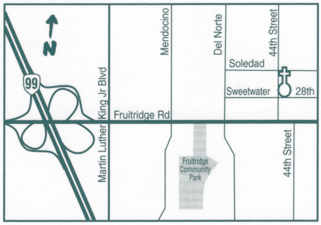
- This event has passed.
Sacramento Chesterton Society Meeting
November 14, 2017 @ 7:30 pm - 9:00 pm
Our November meeting will be on the second Tuesday of the month, November 14, at St. Stephen the First Martyr parish in classroom 2. The meeting will start right after the 6:30 pm Mass, from approximately 7:30 pm to 9:00 pm.
We are discussing Chesterton’s book, St. Francis of Assisi. This month we will be discussing Chapter 2, The World St. Francis Found. It is a very interesting essay about the historical setting, the unique times that St. Francis was born into. That is preceded by a critique of the shortcomings of the journalism and historical writing of his day, a critique that is no less pertinent to today’s journalists and historians.
The first two chapters of St. Francis of Assisi are introductory and preparatory for the meat of the book that follows. This is the same method we’ve seen him use in several of his other books, most notably Orthodoxy and The Everlasting Man.
In Chapter 1, The Problem of St. Francis, Chesterton describes the difficulty of writing the type of biography of St. Francis he wants to write. The problem of St. Francis is the person of St. Francis, when we get right down to it. St. Francis is truly a bigger-than-life character. Many people see in him characteristics or actions they admire. But then he will do something that puzzles or even repels them, something they cannot reconcile with what they believe to be the character of St. Francis. His life was so utterly dedicated to the love of God and the love of his fellow man (and fellow creatures, for that matter) that, as Chesterton said, it is truly beyond the capabilities of anyone but another saint to adequately write the life of this saint (and then immediately said, “In the present case the objections to such a course are insuperable.”)
I will close this email with a quote from the end of the first chapter of our book.
I hope to see you all at our monthly meeting,
Yours,
Spencer
The reader cannot even begin to see the sense of a story that may well seem to him a very wild one, until he understands that to this great mystic his religion was not a thing like a theory but a thing like a love affair. And the only purpose of this prefatory chapter is to explain the limits of the present book; which is only addressed to that part of the modern world which finds in St. Francis a certain modern difficulty; which can admire him yet hardly accept him, or which can appreciate the saint almost without the sanctity. And my only claim even to attempt such a task is that I myself have for so long been in various stages of such a condition. Many thousand things that I now partly comprehend I should have thought utterly incomprehensible, many things I now hold sacred I should have scouted as utterly superstitious, many things that seem to me lucid and enlightened now they are seen from the inside I should honestly have called dark and barbarous seen from the outside, when long ago in those days of boyhood my fancy first caught fire with the glory of Francis of Assisi. I too have lived in Arcady; but even in Arcady I met one walking in a brown habit who loved the woods better than Pan. The figure in the brown habit stands above the hearth in the room where I write, and alone among many such images, at no stage of my pilgrimage has he ever seemed to me a stranger. There is something of a harmony between the hearth and the firelight and my own first pleasure in his words about the brother fire; for he stands far enough back in my memory to mingle with all those more domestic dreams of the first days. Even the fantastic shadows thrown by fire make a sort of shadow pantomine that belongs to the nursery; yet the shadows were even then the shadows of his favorite beast and birds, as he saw them, grotesque but haloed with the love of God. His Brother Wolf and Brother Sheep seemed then almost like the Brer Fox and Brer Rabbit of a more Christian Uncle Remus. I have come slowly to see many more marvellous aspects of such a man, but I have never lost that one. His figure stands on a sort of bridge connecting my boyhood with my conversion to many other things; for the romance of his religion has penetrated even the rationalism of that vague Victorian time. In so far as I have had this experience, I may be able to lead others a little further along that road; but only a very little further. Nobody knows better than I do now that it is a road upon which angels might fear to tread; but though I am certain of failure I am not altogether overcome by fear; for he suffered fools gladly.


 5461 44th Street
5461 44th Street
